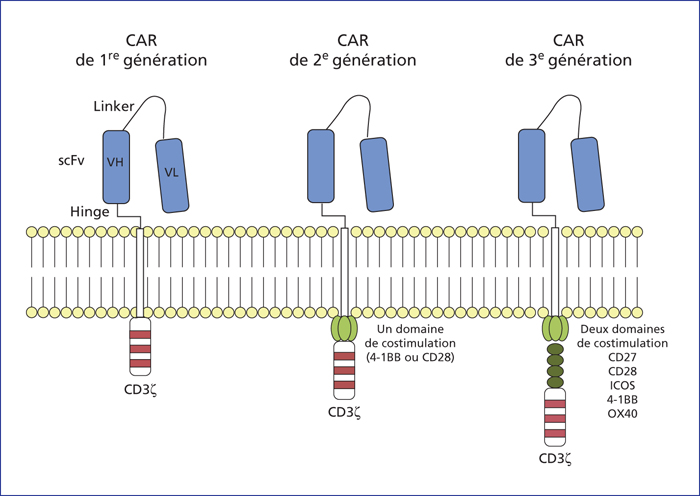Innovations & Thérapeutiques en Oncologie
MENUImmunotherapy for B-cell acute lymphoblastic leukaemia: monoclonal, bispecific antibodies and CAR-T cells Volume 3, issue 2, March-April 2017
Service d’hématologie adolescents et jeunes adultes
1, avenue Claude-Vellefaux
75010 Paris
France
Institut universitaire d’hématologie
Bâtiment Hayem
1, avenue Claude Vellefaux
75010 Paris
France
- Key words: acute lymphoblastic leukemia, immunotherapy, rituximab, blinatumomab, CAR-T cell
- DOI : 10.1684/ito.2017.0077
- Page(s) : 63-71
- Published in: 2017
Over the past 15 years, progress in the treatment of adult acute lymphoblastic leukaemia (ALL) has been based on the intensification of front-line chemotherapy and the introduction of treatments targeting tyrosine kinase inhibitors in Philadelphia chromosome-positive ALL. However, the benefits of these intensified approaches have been limited in older patients due to increased toxicity. The development of immunotherapy may be a major opportunity to improve the outcomes of patients with more limited toxicities. Many strategies targeting the surface antigens of leukaemic cells have been developed over the last decade, including naked and immunoconjugated monoclonal antibodies, anti-CD3/anti-CD19 bispecific T-cell engagers (BiTE), and, more recently, chimaeric antigenic receptor modified T-cells (CAR-T cells). Herein, we review the main results obtained with monoclonal antibodies, BiTE, and CAR-T cells in patients treated for B-ALL.



